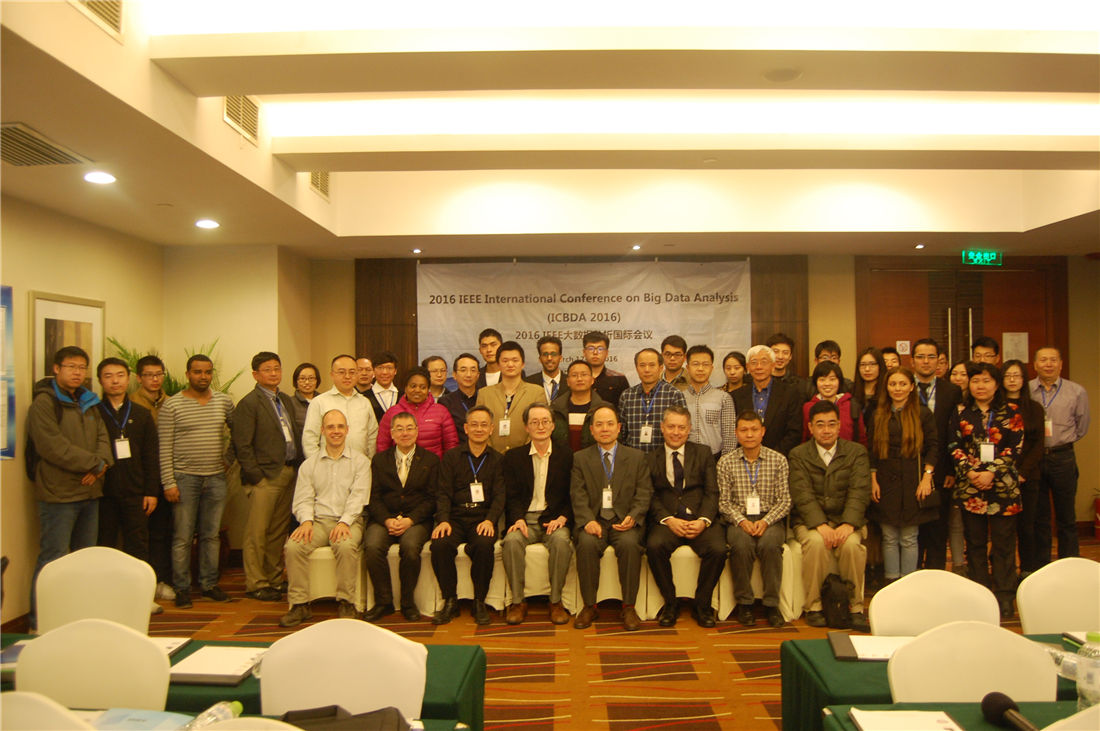2016年3月12-14日,由美国电气电子工程师学会(the Institute of Electrical and Electronics Engineers, IEEE)主办的大数据分析国际会议(International Conference on Big Data Analysis, IEEE ICBDA 2016)在杭州召开。此次会议涵盖了大数据模型与算法、数据架构、数据管理、保存与隐私保护、数据挖掘应用、企业政府社会实践等多个主题,旨在交流大数据领域的最新成果和实践经验。来自美国、德国、南非、澳门、中国等百余名专家、学者参加了此次国际会议。
我院张文宇教授应邀以“Fueling Made-in-China with Internet+ Plan”为主题在大会上做主旨报告,德籍博士Christoph Schubert(马小龙)老师应邀参加此次国际会议。此外澳门大学方正天教授、南非德班理工大学Richard Millham教授、武汉大学王玉林教授、西交利物浦大学关圣威教授、美国德克萨斯大学达拉斯分校张康教授以及东南大学王志功教授分别做了精彩的大会主旨报告。


附:
张文宇教授主旨报告摘要
Made-in-China is facing a distributed manufacturing environment which requires unprecedented levels of interoperability to integrate distributed manufacturing resources across organizational boundaries to support cross-enterprise collaboration. The recently emerged Internet+ plan has been utilized as a promising approach to integrate mobile Internet, cloud computing, big data and the Internet of Things with modern manufacturing to address the above issue. Manufacturing enterprises have been putting their efforts to virtualize their core competencies or advantageous resources as manufacturing services and publish, discover and share them on the open Internet for developing Industry 4.0 applications. However, the large size, dynamic nature and heterogeneous expression of distributed manufacturing resources brings forth a serious challenge in scalability and efficiency. This trend demands intelligent and robust models to address information overload in order to enable efficient discovery of manufacturing services. As an illustrative example of Industry 4.0 service technology, we present a personalized manufacturing service recommendation approach, which combines a PageRank-based reputation model and a collaborative filtering technique in a unified framework for recommending the right manufacturing services to an active service user for supply chain deployment. The novel aspect of this research is adapting the PageRank algorithm to a network of service-oriented multi-echelon supply chain in order to determine both user reputation and service reputation. In addition, it explores the use of these methods in alleviating data sparsity and cold start problems that hinder traditional collaborative filtering techniques.